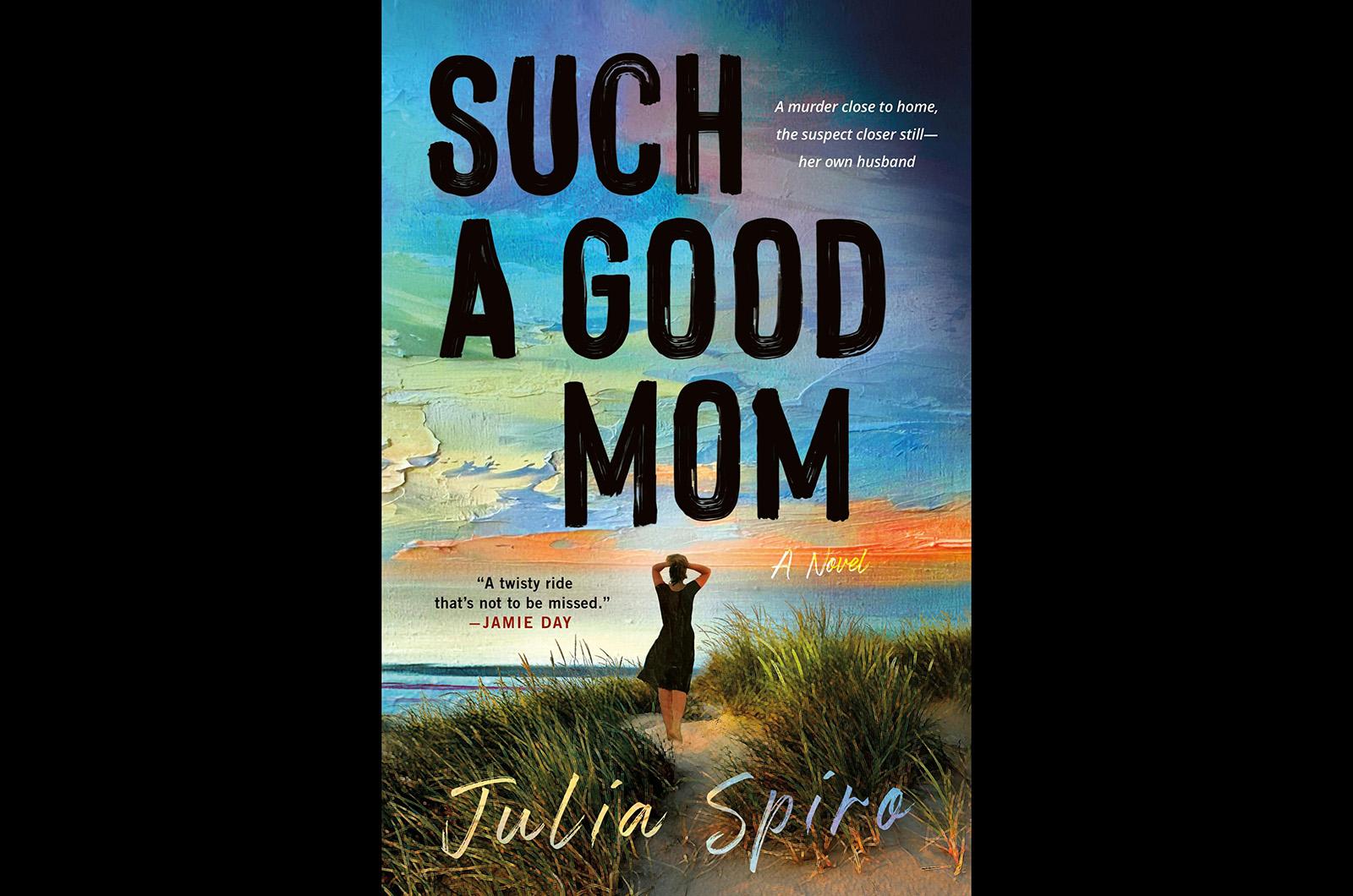Such a Good Mom by Julia Spiro, Minotaur Books, $28, 294 pgs.
Julia Spiro’s third novel, Such a Good Mom, opens on deceptively conventional grounds. A woman named Brynn Nelson has returned to her childhood home of Martha’s Vineyard, and there she’s facing several personal problems at once. She’s grappling with the nerve-wracking demands of raising her young son Lucas, she’s straining to regain her inspiration to start writing again after a stall that’s beginning to feel ominous, and most of all, she’s dealing with the growing sense of distance she feels between herself and her husband Ross, son of one of the Island’s most prominent builders and developers.
Brynn and Ross might at one point have looked to the outside world like a storybook couple, but the cracks had become unmissable to Brynn after the birth of their child. Ross is happy and doting when he spends time burbling with the baby, but that’s all he does.
“He wasn’t photographing the mysterious bump on the inside of Lucas’s left ear and then searching the ends of the internet to find out what it was, while waiting for a call back from the pediatrician,” Brynn thinks — all those little everyday tasks Ross unthinkingly leaves to her, until she reaches the point where taking care of Lucas “often felt like another job on her to-do list, even though she felt terrible admitting that.”
Sometimes she finds herself daydreaming about Ross’s brother Sawyer, who always lives in her mind’s eye as “the boy on the docks in Menemsha. The black sheep of his family. Good, but misunderstood. Fumbling, free-spirited, but endlessly kind and sweet.”
All such reveries explode when, soon after the novel opens, the real plot kicks off: the dead body of a woman named Cecelia Buckley is found at Norton Point Beach. Cecelia was the girlfriend of Jacob Hammers, son of Edgartown’s chief of police Pete Hammers.
Brynn has a long history with virtually all the people involved — Ms. Spiro subtly but effectively shows throughout the book how small a community Edgartown, and by extension the Vineyard, can be sometimes (at one point when a piece of news reaches a character even in her hospital bed, somebody quips, “Of course it did. This is the Vineyard”).
Like everybody else on the Island, Brynn is shocked by the death, which doubles when Ross is arrested on suspicion of being the murderer.
Then Brynn receives a cryptic text message from him: “Trust me. Please. I can explain everything. You’ll understand soon.”
Definitely not the kind of thing you want to hear from your husband when a woman’s dead body washes up at a local beach. Slowly, by gradual steps, Brynn finds herself not only juggling her concern about Ross and her duties to Lucas but a kind of amateur investigation into the Island politics and hidden deals that may have led to a young woman’s death and will before long lead to another murder.
Ms. Spiro orchestrates all these multiple layers with a good deal of skill. There are all the red herrings mystery fans love to expect, from unexpectedly shaky alibis to damning surveillance camera footage that simply can’t be real. Some readers may be hoping for more Vineyard atmosphere — virtually all of the book could have been set in any close-knit small town in America — and more centrally, some readers may find the book’s two narrative concentrations, murder and motherhood, incompatibly jarring. But Ms. Spiro makes Brynn herself such an immediately sympathetic figure that simply wanting to follow her through her adventures will carry all those readers along.
The murder investigation steadily heats up, sometimes with ironic little bits thrown in as a nod to the reader (at the beginning of the book, for instance, one character sarcastically floats the idea of a possible solution that will end up being mighty close to the mark by the final chapter), always with a steady, genuine pathos.
By the climax of the story, it’s clear that Brynn’s greatest adventure will be motherhood. Her friend Ginny crops up early as a symbol of the kind of devoted maternal life Brynn has dreamed of for herself.
“Even when Ginny complained to Brynn about her struggles of motherhood — the kids’ sleep regressions, the difficulty of potty training, the tantrums, the fights with her husband,” readers are told, “there was always an unspoken implication that Ginny nevertheless loved being a mother, and that she loved her children.”
Brynn even begins to see her own mother in a new and far more human light for the first time (as to Margaux, Ross’s mother, well, you can’t win ‘em all).
Readers will be expertly kept guessing throughout the book: is charming but feckless Ross actually capable of murder? Was happy-go-lucky Sawyer really the right brother for Brynn? Can a killer go undetected and strike again even in such an incredibly gossipy and close-focus community?
They will also have their heartstrings tugged, which is a very nice bonus when a book can pull it off as neatly as this one does.




Comments
Comment policy »